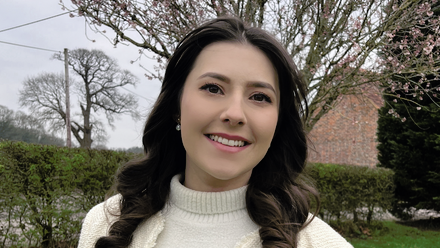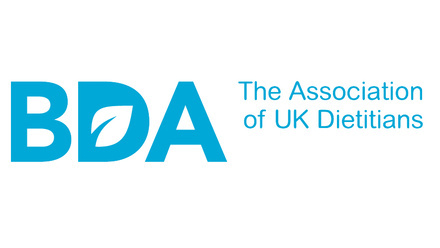by Annabel Gipp, Specialist Eating Disorders & Mental Health Dietitian.
Fad diets are diets that make claims that are unrealistic and not supported by evidence-based science (4 - see references below) and have been around for hundreds, if not thousands, of years. William the Conqueror went on an ‘alcohol diet’ to slim down to ride his favourite horse and Byron famously dieted on egg whites and vinegar to maintain his pale, thin look (1). Mainstream fad diets have been popular in modern society since the early nineteenth century, with the cabbage soup, blood type, Dukan diet and maple syrup diet to name but a few (4).
Despite these diets’ popularity and glittering claims of success, we continue to see increasing numbers of overweight and obese people. In America it is reported that 45 million people go on a diet each year, yet two-thirds remain overweight or obese (2). In the UK, 26% of men and 27% of women are obese and 40% of men and 30% of women are overweight. In 2017, 47% of the population were trying to lose weight and women or those between 25 and 64 years old, were the most likely to report being on a diet.
Media platforms and technology
We are also seeing increasing numbers of people using apps and smartphones to help with dieting; 8% of people report using apps and 6% physical activity trackers. It seems technology is becoming a vital part of diet culture, but is it useful and how much do we know about it?
As dietitians, we are making conscious efforts to break into different types of media and be a knowledgeable presence on these platforms. From debunking bad science to promoting health and wellbeing, dietitians are becoming a greater and louder voice. However, despite these efforts, we are still seeing common maladaptive dieting practices, such as use of over-the-counter meal replacements, diet pills and faddy diet tips. 20% of young women in a 2006 American study reported following fad diets such as the Atkins diet or South Beach diet rather than following national, evidence-based, weight loss advice (5).
But what’s the harm if people want to follow these diets? Well, fad diets have been reported by the BDA to not lead to long-term weight loss. They may result in initial drastic weight loss, but inevitably due to the highly restrictive nature of the diets, end with people gaining more weight in the long run. This BDA fact sheet on Fad Diets is full of valuable information.
Fad diets are dangerous
Also, not only do these diets not work, but they can be dangerous. Yo-yo fad dieting has been linked with increased mortality and morbidity, particularly from coronary heart disease, and there is evidence to suggest negative impacts on mental health and life dissatisfaction (8). The study from the US concluded that all participants, whether overweight, obese or healthy weights, had limited understanding of how to lose weight healthily and we need to continue to make efforts to promote these messages.
So how can we do this in a way which is accessible, and more importantly, holds credibility with the general public? We know that accessing GPs and weight loss specialists is uncommon, so we may need to investigate alternative communication (7). Social media appears to be the answer; with a total audience of 5.1 billion smartphone users across the globe (6). The fad diet industry seems to have had a head start on one of the most popular platforms: Instagram.
The role of Instagram
Instagram is a tool which allows you to post pictures with hashtags to quickly locate similar posts. Searching #diet and #dietfood reveals glossy images and advice on how to cut down on carbs, reduce sugar, eat paleo and consume ‘whole foods’. However what’s not clear are the sponsorships, book deals, paid appearances and businesses behind these posts.
We often see in the news people touting miracle cures for their cancer, although the blogger has no official diagnosis, as in the case of Australian wellness blogger Belle Gibson. There are also wellness bloggers touting miracle products such as Chaga Mushroom Tincture soaked in organic alcohol for five years which David Wolfe claims has a ‘polysaccharide and white blood cell nourishing fraction, as well as a triterpene and antiviral fraction’. Whilst we must never outwardly dismiss any potential beneficial functional food, as a dietitian myself, I struggle to understand what the Chaga Mushroom tincture is going to do and I have been unable to locate a scientific paper to support these claims.
The movement on Instagram appears to be towards ‘natural products’, ‘no additives’ and ‘whole foods’. There are many things being demonised on Instagram, white fl our which contains ‘bleach’ and therefore will inevitably cause you to be fat and unhealthy, being the most recent one I have seen. The language used can be very scientific, fostering confidence in the blogger, however, the advice is often not seated in scientific fact, is not published or peer-reviewed and can often recommend expensive alternatives.
What needs to be done?
Luckily on Instagram there are already bloggers who scrutinise these posts, but there is also a role for us as individual dietitians:
- Firstly, be aware of the dangers of Instagram fad diets and make sure that we are teaching our patients how to scrutinise what they see
- Secondly, we need to make sure we are highlighting any dangerous posts or advice. Again, the BDA publishes a list of ‘The Worst Celebrity Diets’ of the year
- Thirdly, promote the public campaigns by Public Health England and the BDA, these have been shown to increase awareness of healthy weight loss practices
- Finally, take a leap and be the scientific, balanced, trusted professional on Instagram
Instagram is a fantastic tool to connect with thousands of people who we won’t be able to have in our clinics. The impact could be huge, and the more dietitians spreading the message, the better. Get yourself the app, get a professional account, and get posting. I’ve just started mine!
References
1. The long, strange history of dieting fads - The Conversation
2. Nutrition and weight management , Boston Medical Center
3. Health Survey for England 2016 Adult overweight and obesity
4. Navaro D.A., Raz O., Gabriel S., Shriqui V.K., Boaz M., Functional Foods in Fad Diets: A Review. Functional Foods in Health and Disease 2017; 7(9); 702-715
5. Malinauskas B M, Raedeke T D, Aeby V G, Smith J L & Dallas M B (2006) Dieting Practices, weight perceptions, and body composition: A comparison of normal weight, overweight and obese college females. Nutrition Journal 5: 11
6. Cooper P (2018) Social Media Advertising Stats that matter to Marketers in 2018. Accessed 29/8/16.
7. Yoong S L, Carey M L, Sanson-Fisher R W & D’Este C (2012) A cross-sectional study assessing the self-reported weight loss strategies used by adult Australian general practice patients. BMC Family Practice 13: 48
8. Bronwell K D, Rodin J (1994) Medical, Metabolic and psychological Effects of Weight Cycling. Arch Inter Med 12: 1325-1330




